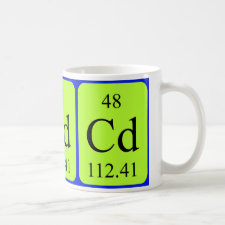Authors: Cao H, Yang P, Ye T, Yuan M, Yu JS, Wu XX, Yin FQ, Li Y, Xu F
Article Title: The selective recognition mechanism of a novel highly hydrophobic ion-imprinted polymer towards Cd(II) and its application in edible vegetable oil.
Publication date: 2021
Journal: RSC Advances
Volume: 11
Issue: (55)
Page numbers: 34487-34497.
DOI: 10.1039/D1RA04132K
Abstract: Edible vegetable oils are easily contaminated by heavy metals, resulting in the oxidative degradation of oils and various health effects on humans. Therefore, it is very important to develop a rapid and efficient method to extract trace heavy metals from vegetable oils. In this work, a highly hydrophobic ion-imprinted polymer (IIP) was synthesized on a novel raspberry (RS)-like particle surface. The synthesized IIP@RS was characterized and used in solid-phase extraction (SPE) for the selective and fast adsorption of Cd(II) from vegetable oils. The results showed that IIP was successfully coated onto RS particles with a high specific surface area (458.7 m2 g-1) and uniform porous structure. The contact angle (Θ ) value (141.8° ) of IIP@RS was close to the critical value of super-hydrophobic materials, which is beneficial to their adsorption in hydrophobic vegetable oils. The IIP@RS also exhibited excellent adsorption ability and selectivity to Cd(II) with a maximum adsorption capacity of 36.62 mg g-1, imprinting factor of 4.31 and equilibrium adsorption rate of 30 min. According to isothermal titration calorimetry results, the recognition behavior of IIP@RS for Cd(II) was mainly contributed by Cd(II)-induced cavities during gel formation and coordination between Cd(II) and -SH groups in imprinted cavities. Furthermore, the adsorption process driven by entropy and enthalpy was spontaneous at all temperatures. In real vegetable oil samples, IIP@RS-SPE adsorbed approximately 96.5-115.8% of Cd(II) with a detection limit of 0.62 μg L-1. Therefore, IIP@RS has wide application prospects in enriching and detecting Cd(II) from vegetable oil



Join the Society for Molecular Imprinting

New items RSS feed
Sign-up for e-mail updates:
Choose between receiving an occasional newsletter or more frequent e-mail alerts.
Click here to go to the sign-up page.
Is your name elemental or peptidic? Enter your name and find out by clicking either of the buttons below!
Other products you may like:
 MIPdatabase
MIPdatabase









